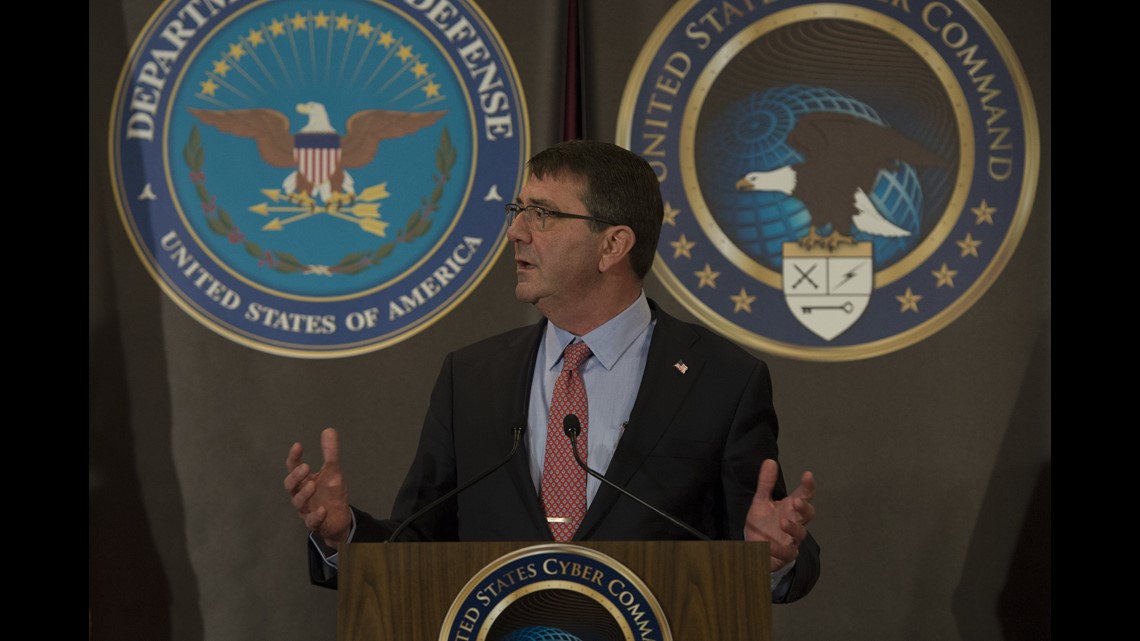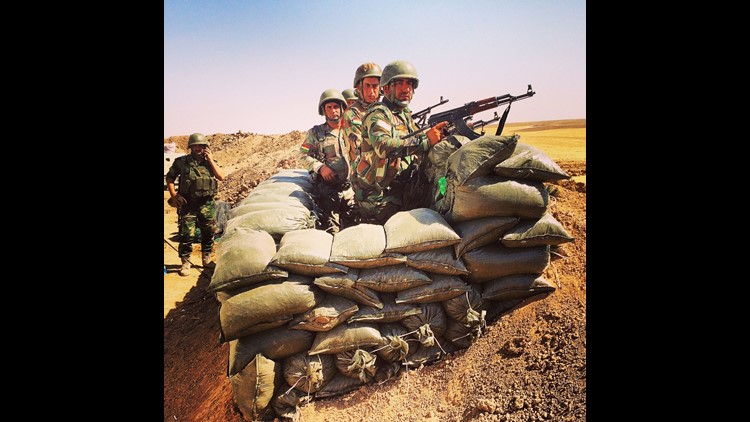BAGHDAD — ISIS fighters pulled out of key parts of Ramadi on Saturday after fierce fighting with Iraqi government forces backed by coalition airstrikes, according to two Iraqi security sources in the city who did not want to be named because they’re not authorized to speak to the media.
ISIS withdrew from the provincial headquarters building, which they left booby-trapped, and the central police headquarters, which they burned, the sources said.
The Iraqi Ministry of Defense said Iraqi security forces made significant gains in the city and now control the central part of the city, including 75 percent of al-Malaab neighborhood.
Journalist Mitchell Prothero of McClatchy Newspapers told CNN the battle for Ramadi is far from over.
He said ISIS forces didn’t withdraw from the government compound buildings — they abandoned them to move into residential neighborhoods where they’ll be less likely to be hit by coalition airstrikes.
“They don’t really care about [a government building] once the symbolism of it falling has been made apparent on TV and in the media,” he said. “They’ve got their eye not on a symbolic prize at this stage but the actual substantive one of taking over a city of 900,000 people and resisting the coming counterattack,” he said.
The violence marks the latest in the tug-of-war for Ramadi, the capital of the Anbar province.
The city is just a few miles from an Iraqi army headquarters that ISIS blew up in March and 70 miles (113 kilometers) west of Baghdad. Ramadi is strategically located in the middle of Iraq’s Sunni Muslim heartland, which is largely controlled by ISIS.
On Thursday, ISIS pushed into Ramadi, using armored bulldozers and at least 10 suicide bombings to burst through gates and blast through walls, according to a security source who has since left the city.
Dozens of militants followed them into the city center and ISIS raised its trademark black flag over the provincial government building.
On Friday, the United States announced that it is “expediting” weapon shipments to Iraq because of the current fighting in Ramadi.


Meanwhile, the U.S. operation to kill a top ISIS commander on Saturday was a “significant blow” to the terror group, Defense Secretary Ashton Carter said.
The ISIS commander, Abu Sayyaf, was killed after he fought capture in the raid at al-Omar in eastern Syria, Carter said in a statement. His wife, an Iraqi named Umm Sayyaf, was caught and is being held in Iraq.
Carter said he had ordered the special forces raid against the terror group, also known as ISIL, at the direction of President Barack Obama. All the U.S. troops involved returned safely.
“Abu Sayyaf was involved in ISIL’s military operations and helped direct the terrorist organization’s illicit oil, gas and financial operations as well,” Carter said in the statement. “The operation represents another significant blow to ISIL, and it is a reminder that the United States will never waver in denying safe haven to terrorists who threaten our citizens, and those of our friends and allies.”
National Security Council spokeswoman Bernadette Meehan said the President’s national security team unanimously supported the operation, and a White House official told CNN that Obama was regularly briefed while it was ongoing.
She said the mission was conducted with the “full consent” of Iraqi authorities and was consistent with domestic and international law.
Meehan added that U.S. authorities were working to determine the next step in the detainment of Umm Sayyaf, who is believed to be a member of ISIS and “played an important role” in the terror group’s activities.
There is reason to believe that Abu Sayyaf may have been in contact with ISIS leader Abu Bakr al-Baghdadi, sources familiar with the operation told CNN.
Although he was not taken alive, U.S. forces did capture some of his communications equipment, the sources said.
Abu Sayyaf also was known by the names Abu Muhammad al Iraqi and Abd al Ghani, they said.
More details are starting to emerge of how the raid deep in ISIS-controlled territory was carried out.
There was hand-to-hand combat during the operation, which was helicopter-borne, the sources told CNN.
About a dozen ISIS fighters were killed in the firefight at a residential building in Deir Ezzor, the sources said.
The Syrian Observatory for Human Rights, a London-based monitoring group, said at least 19 ISIS militants had been killed by coalition bombing targeting ISIS’ location in al-Omar oil field in eastern Deir Ezzor in the early hours of Saturday.
Preliminary information indicates that the U.S.-led coalition airdropped forces following the bombardment, it said.
A senior administration official told CNN the purpose of the mission was to capture the target, but he engaged U.S. forces so he was killed. While the purpose was to capture, the forces had the option to kill if they deemed it necessary, the official said.
Abu Sayyaf is not a name familiar to many ISIS watchers.
The fact that the United States clearly had him under close watch and was ready to put its forces at risk to carry out a ground raid, rather than ordering a drone strike, suggests the target was seen as very valuable.
CNN National Security Analyst Peter Bergen said the decision to send in U.S. Special Operations forces into Syria was unusual but not unprecedented.
“Taking out the guy who runs effectively the most important financing stream is obviously significant, but what’s really significant is the computer records and all the materials that he would have with him as the head of this financing arm, if indeed that is the case that he is really that important,” said Bergen.
The potential to seize valuable intelligence material and documents may have been what led the U.S. government to opt for a high-risk ground operation rather than a bombing mission, he said.
Such targeted operations push ISIS to be more careful about how they organize themselves and run their operations, he said. “They are going to be looking over their shoulder.



